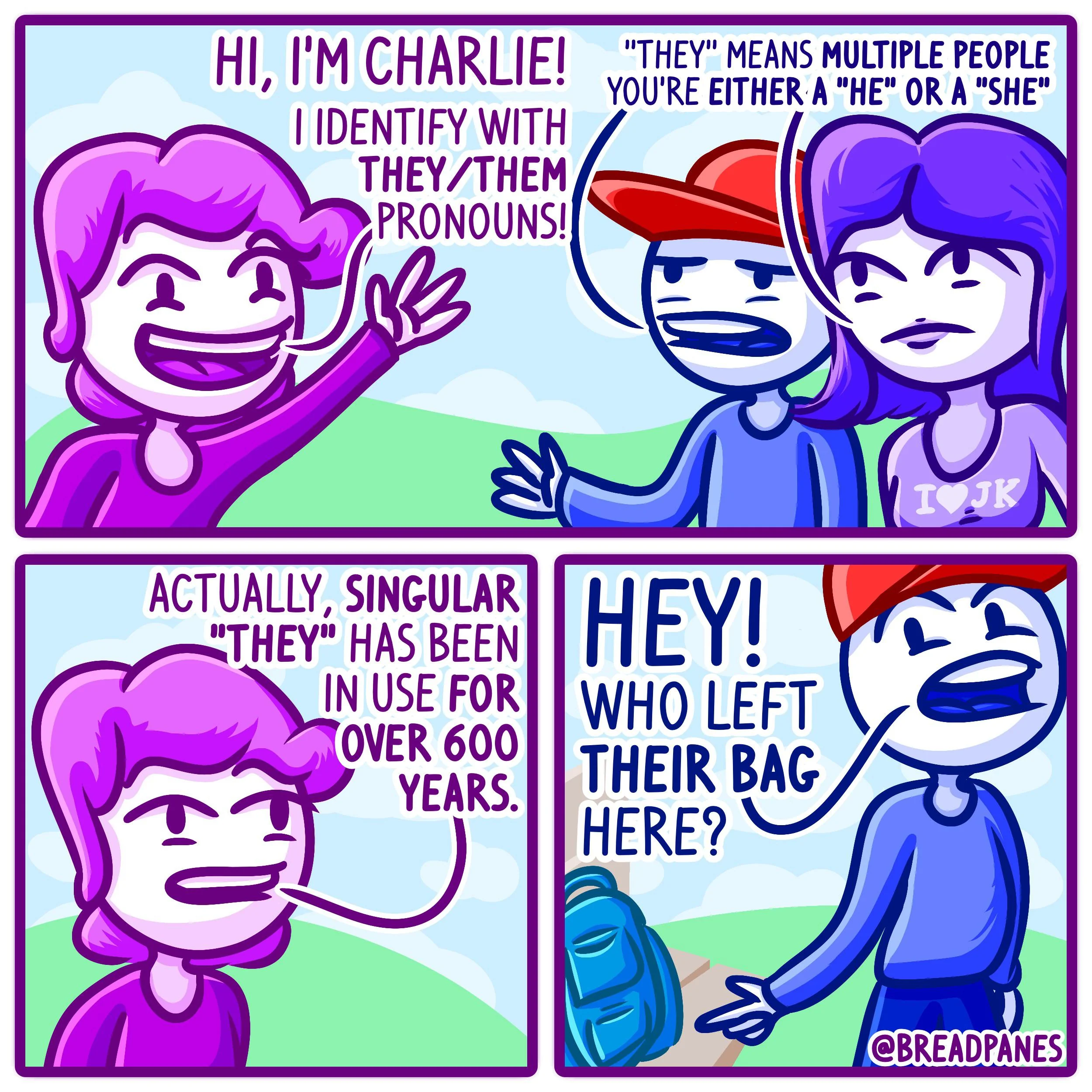this post was submitted on 12 Dec 2024
499 points (81.0% liked)
Comic Strips
16272 readers
3662 users here now
Comic Strips is a community for those who love comic stories.
The rules are simple:
- The post can be a single image, an image gallery, or a link to a specific comic hosted on another site (the author's website, for instance).
- The comic must be a complete story.
- If it is an external link, it must be to a specific story, not to the root of the site.
- You may post comics from others or your own.
- If you are posting a comic of your own, a maximum of one per week is allowed (I know, your comics are great, but this rule helps avoid spam).
- The comic can be in any language, but if it's not in English, OP must include an English translation in the post's 'body' field (note: you don't need to select a specific language when posting a comic).
- Politeness.
- Adult content is not allowed. This community aims to be fun for people of all ages.
Web of links
- [email protected]: "I use Arch btw"
- [email protected]: memes (you don't say!)
founded 2 years ago
MODERATORS
you are viewing a single comment's thread
view the rest of the comments
view the rest of the comments

Dan or Steve is what I mean here — meanings within the context of their usage, not in an isolated sense. These meanings would both be described as "third person singular male pronoun" in a dictionary, but by the nature of a pronoun the whole point is for it to refer to something you've already talked about in context
We can test for this. If there's only one subject, Dan, then the sentence becomes:
No ambiguity there, it can only mean Dan. Similarly, with a single subject that consists of multiple people:
Exact same thing, no ambiguity. So we can use "they" in both senses and it's totally fine so long as there's only one subject. The ambiguity comes about when there are two possibilities already mentioned that the pronoun could potentially refer to — just like if Dan and Steve are both "he".
Again, we're talking about different linguistic issues, which I'll demonstrate below. I see now that my example wasn't a good example because it conflates a consequence of the problem with the problem itself.
There are two different ambiguities. You're talking about ambiguity over the subject whereas I'm talking about ambiguity over the sense of the pronoun.
"I was with Dan (they/them) the other day. They hadn't brought a poster they needed and went back to the car to get it."
No ambiguity over sense of "they". No ambiguity over subject.
"I was with the newlyweds the other day. They hadn't brought a poster they needed and went back to the car to get it."
No ambiguity over sense of "they". No ambiguity over subject.
"I was with Dan (he/him) and Steve (he/him) the other day. He hadn't brought a poster he needed and went back to the car to get it."
No ambiguity over sense of "he". Ambiguity over subject.
"I was with Dan (they/them) and Steve the other day. They hadn't brought a poster they needed and went back to the car to get it."
Ambiguity over sense of "they". Ambiguity over subject.
The ambiguity over the sense of the pronoun is the confusion. That's the problem. The ambiguity over the subject is a problem but not the problem I meant.